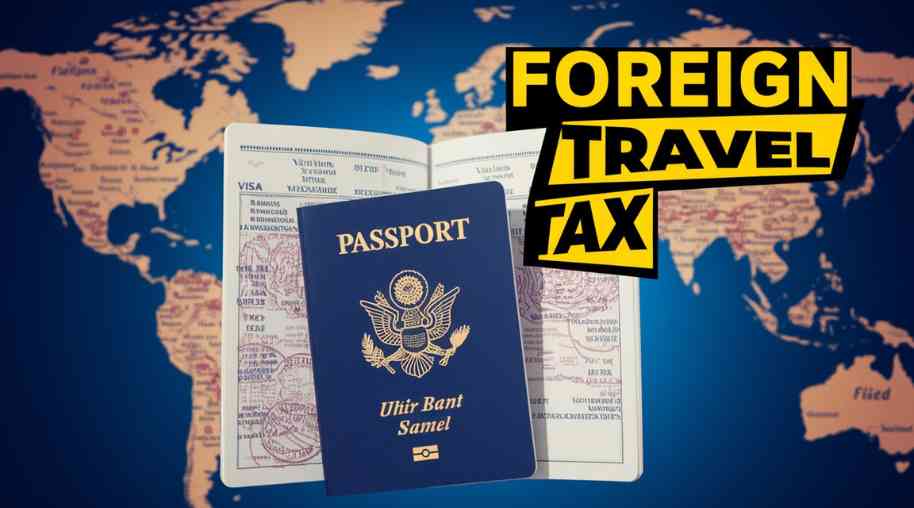FTT Full Form-Foreign Travel Tax
by Shashi Gaherwar
0 2058
Introduction
A Foreign Travel Tax (FTT) is a levy imposed by governments on individuals traveling abroad, designed to generate revenue, regulate international travel, and fund tourism or infrastructure projects. Typically included in airfare or collected at departure points like airports and border crossings, this tax plays a significant role in national economies. This article explores the concept of FTT, its types, reasons for implementation, impact on travelers and economies, and global variations.

What is Foreign Travel Tax?
Foreign Travel Tax is a mandatory fee charged on outbound travelers. It varies across countries as a fixed fee, a percentage of airfare, or a levy based on the destination. The collected funds contribute to national revenue, tourism promotion, or airport maintenance.
Reasons for Imposing Foreign Travel Tax
- Revenue Generation: Provides an additional income stream for governments.
- Tourism Promotion: Reinvests funds to promote inbound tourism.
- Infrastructure Development: Supports upgrades to airports, roads, and transport facilities.
- Environmental Conservation: Allocates funds to environmental initiatives.
- Regulation of Outbound Travel: Controls excessive outbound tourism to maintain economic balance.
Types of Foreign Travel Tax
- Departure Tax: Imposed on passengers leaving a country, often included in airline ticket prices.
- Airport Tax: Levied for using airport facilities, either integrated into tickets or collected separately.
- Tourism Levy: Charged to tourists upon entry or departure to promote domestic tourism.
- Passenger Service Charge: A fee for security and terminal maintenance services at airports.
- Visa-Based Travel Tax: Included in visa fees for outbound travelers in some countries.
How Foreign Travel Tax Affects Travelers
- Increased Travel Costs: Raises ticket prices due to additional taxes.
- Destination Preferences: Encourages travelers to choose destinations with lower or no travel taxes.
- Impact on Budget Travelers: Discourages frequent or budget-conscious travelers.
- Administrative Hassles: Some taxes require manual payments at departure points.
Impact of Foreign Travel Tax on the Economy
Positive Effects
- Boosts Government Revenue: Funds essential public services.
- Enhances Tourism Infrastructure: Supports improvements in transportation and facilities.
- Encourages Domestic Tourism: High outbound costs promote domestic destinations.
Negative Effects
- Reduces Outbound Travel: High taxes may discourage international tourism.
- Affects Aviation Industry: Increased ticket costs can lower demand for flights.
- Potential Diplomatic Disputes: Heavy taxation may lead to disputes with other nations.
Global Examples of Foreign Travel Tax
- United Kingdom: The Air Passenger Duty (APD) is based on travel distance and class.
- United States: Passenger facility charges fund airport development and security.
- Japan: The "Sayonara Tax" applies to departing travelers.
- India: A small charge is imposed on international air travelers.
- Australia: The Passenger Movement Charge (PMC) funds border security and infrastructure.
Future Trends in Foreign Travel Tax
- Digital Tax Collection: Automated collection through airline ticketing systems.
- Environmental Taxes: Increased focus on eco-friendly travel levies.
- Regional Tax Harmonization: Efforts to standardize travel taxes across regions.
- Exemptions for Frequent Travelers: Potential relief for business travelers or diplomats.
- Tourism Recovery Strategies: Adjustments to taxes to boost international tourism post-pandemic.
Foreign Travel Tax is a key revenue-generating tool for governments but influences traveler decisions and economic policies. While it supports infrastructure and tourism development, excessive taxation can discourage international travel. Balancing revenue needs with traveler affordability is crucial for sustainable economic growth.
Further Learning Resources
If you’re passionate about building a successful blogging website, check out this helpful guide at Coding Tag – How to Start a Successful Blog. It offers practical steps and expert tips to kickstart your blogging journey!
For dedicated UPSC exam preparation, we highly recommend visiting www.iasmania.com. It offers well-structured resources, current affairs, and subject-wise notes tailored specifically for aspirants. Start your journey today!

Share:









Comments
Waiting for your comments